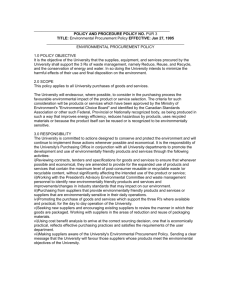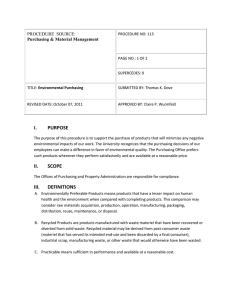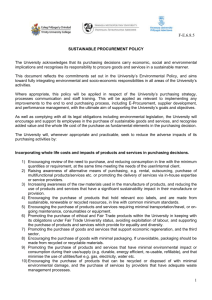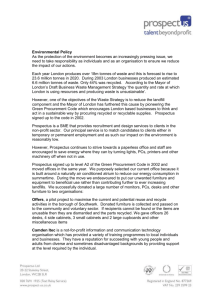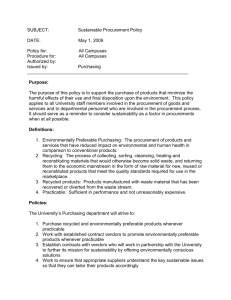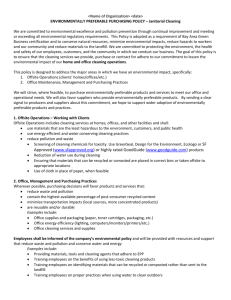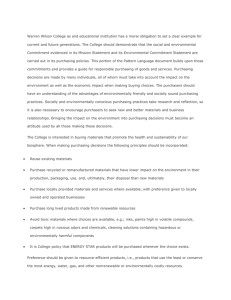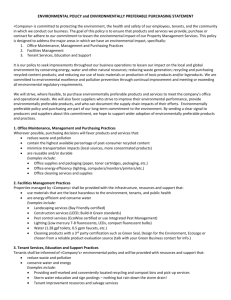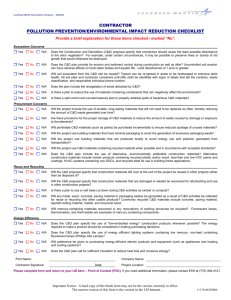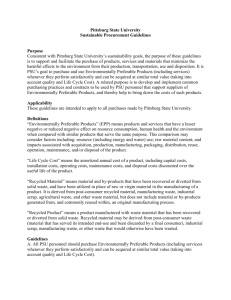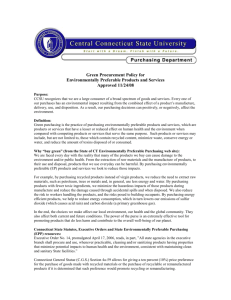Responsible-Purchasing
advertisement
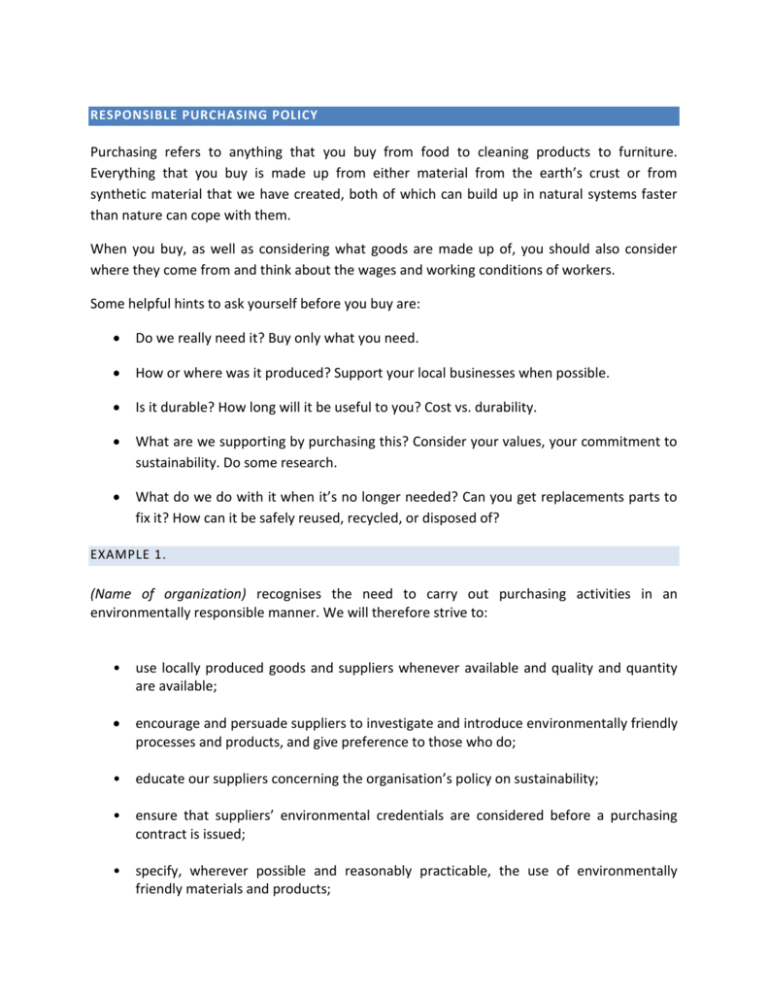
RESPONSIBLE PURCHASING POLICY Purchasing refers to anything that you buy from food to cleaning products to furniture. Everything that you buy is made up from either material from the earth’s crust or from synthetic material that we have created, both of which can build up in natural systems faster than nature can cope with them. When you buy, as well as considering what goods are made up of, you should also consider where they come from and think about the wages and working conditions of workers. Some helpful hints to ask yourself before you buy are: Do we really need it? Buy only what you need. How or where was it produced? Support your local businesses when possible. Is it durable? How long will it be useful to you? Cost vs. durability. What are we supporting by purchasing this? Consider your values, your commitment to sustainability. Do some research. What do we do with it when it’s no longer needed? Can you get replacements parts to fix it? How can it be safely reused, recycled, or disposed of? EXAMPLE 1. (Name of organization) recognises the need to carry out purchasing activities in an environmentally responsible manner. We will therefore strive to: • use locally produced goods and suppliers whenever available and quality and quantity are available; encourage and persuade suppliers to investigate and introduce environmentally friendly processes and products, and give preference to those who do; • educate our suppliers concerning the organisation’s policy on sustainability; • ensure that suppliers’ environmental credentials are considered before a purchasing contract is issued; • specify, wherever possible and reasonably practicable, the use of environmentally friendly materials and products; • DECREASE THE USE OF TOXINS DETRIMENTAL TO HUMAN HEALTH AND TO THE ENVIRONMENT. specify the use of bulk purchasing, rather than individually packed items specify the use of as little packaging material as possible, and the use of reused cardboard boxes instead of plastic bags when packing an order; provide our own containers (reused cardboard boxes), for the packing of supplies; • ensure that consideration is given for suppliers to submit prices for environmentally friendly alternatives; and • Ensure that appropriate consideration is given to the costs and benefits of environmentally friendly alternatives, especially in terms of life cycle comparisons. EXAMPLE 2. RESPONSIBLE PURCHASING POLICY (Name of organisation) will ensure that when products are bought and services used, we will consider the environmental aspects, potential impacts and costs, associated with their life cycle. Our practice of procuring products and services will make an effort to make sure that they are less harmful to the environment and that they are made with less harmful materials when produced, used or consumed. This will include, where possible; buying locally, buying recycled and recyclable, using less chemicals and reducing our carbon footprint associated with products and services. We will communicate this to all our product suppliers and service providers, as well as to our employees and ask them to join us in our commitment to responsible purchasing. In particular the following will be considered: CLEANING PRODUCTS: Use cleaning products that are effective at lower temperatures Avoid phosphorus and limit biocides in the product (too much phosphorous can cause algal blooms in water, which can kill other life forms; biocides are chemical substances or microorganisms that are used with the intension of killing living organisms, used in disinfectants) Follow the recommended dosages, and try to decrease the use of products through efficient cleaning techniques. Decrease the quantity of packaging used Source packaging made from recycled materials and that can be recycled Use products made locally where they meet the standards LIGHTING: Purchase bulbs that have low energy usage and/or least environment damage when disposing of; Use lighting controls to further reduce energy consumption e.g. room cards to activate and deactivate electricity; At installation stage, ensure system works as intended, in an energy efficient way; Dispose of/recycle all used bulbs appropriately. FOOD AND CATERING: Buy organic where possible; Buy sustainably produced or caught fish and shellfish; Buy livestock products from farms with good welfare records; Use seasonal vegetables and fruits; Buy in bulk ; Buy reusable cutlery, crockery, glassware, napkins and tablecloths; Minimize of the use of hazardous chemicals and the use of environmentally friendly cleaning and dishwashing products; Buy water and energy efficient kitchen appliances; Buy locally. OFFICE AND FURNITURE Buy energy efficient models e.g. computer screens; Purchase products with a restricted amount of hazardous materials ; Purchase products with a restricted noise level; Make sure the packaging used can be recycled ; Buy paper that is made from recycled paper or sustainable forests; Only buy timber from legal and sustainably managed forests; Use materials where possible made partly or totally from recycled materials and/or renewable materials ; Buy repairable and recyclable furniture.
